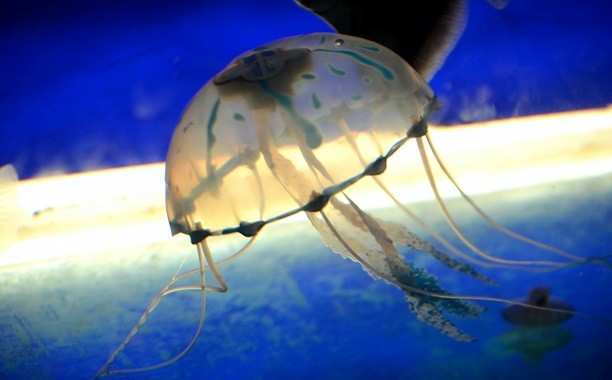An extremely lethal jellyfish known as the Portuguese Man-of-War has been spotted off the coast of the Jersey Shore and authorities are warning swimmers to steer clear of the cute-looking but very dangerous creatures, NJ.com reported.
The Man-of-War can be very dangerous depending on the age of the victim and the spot of the sting. The deadly creature has been reportedly spotted over 25 times on the beaches of Long Beach Island and Stone Beach.
While they exhibit a gelatinous appearance, scientists are quick to point out that they not jellyfish. Instead, the ethereal creatures are actually part of a group associated with jellyfish known as siphonophores. Their poison-laced tentacles are capable of extending anywhere from to 10 to 30 feet, sometimes reaching astonishing lengths measuring as much as 160 feet.
The body of the jellyfish-esque creature appears blue as it’s filled with water. Swimmers have reportedly mistaken the Man ‘o War for a plastic bag.
Officials tell beachgoers to beware of their surroundings not only in the water but also along shore. It is easy for this venomous creature to blend in with the sand. Many times, people are stung by walking along the shore and stepping on a washed up Man-of-War. Although authorities warn of the dangers of an encounter with the creature, they understand that some stings are unavoidable. Wildlife officials do not expect people to stop swimming or walking along the shore, they are just asking for extra attentiveness and the knowledge of how to treat a sting.
If you do get stun, officials advise that you head for dry land, remove any tentacles remnants and quickly wash the wound with sea water, not fresh water. Don’t scrub the affected area. Apply ice to reduce pain and swelling. If necessary, apply a topical treatment containing benzocaine or orlidocaine.
Symptoms of a sting include severe pain and rashes.
So the next time you go swimming be sure to be alert, careful, and prepared.
In other jelly news, scientists have found that the moon jellyfish adapts to retain symmetry when it loses limbs.
























